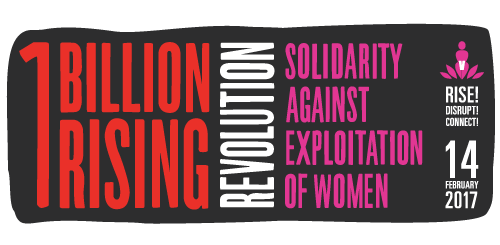 The Board of Directors at Orange County Rape Crisis Center (OCRCC) is excited to announce the hiring of Rachel Valentine as its new Executive Director. Although Ms. Valentine is new to the position, she is certainly no stranger to the OCRCC and the fight to end sexual violence. Rachel has been on staff with the organization since 2011, and has served as its Community Education Director for the past three years.
The Board of Directors at Orange County Rape Crisis Center (OCRCC) is excited to announce the hiring of Rachel Valentine as its new Executive Director. Although Ms. Valentine is new to the position, she is certainly no stranger to the OCRCC and the fight to end sexual violence. Rachel has been on staff with the organization since 2011, and has served as its Community Education Director for the past three years.
According to board president, Kandace Farrar, the entire board is “…elated that Rachel will be taking over this new leadership role.” Rachel was unanimously chosen by the board at its most recent meeting, following a competitive search. “During the seven years Rachel has been at the Center she has gained wide respect in the community and emerged as a leader in this field,” said Ms. Farrar.
A native of Seattle, Rachel is a 2008 graduate of UNC where she was a Morehead-Cain scholar and earned a degree in Women’s and Gender Studies with a second major in Latin American Studies and minor in Economic Justice. Prior to joining the staff at OCRCC, Rachel held a variety of leadership roles with Orange County Literacy Council, Citizen Schools, and the Ella Baker Women’s Center for Community Activism.
“This is such an exciting time for our organization,” said Rachel. “As we continue to grow into our values of excellence in care and accessibility for all, we stay grounded in our roots as a community-based organization. We are so grateful to our community for making us a trustworthy source of help, hope, and healing for so many survivors, and we invite any of you reading this now to join us in our mission as a volunteer or supporter.”
Rachel assumed her new duties on Monday, July 16. She takes the reigns from Jaclyn Gilstrap who has held the title of Interim Executive Director since March and describes Rachel as “a kind and empathetic leader, to whom staff regularly turn during times of uncertainty…” and “an extremely intelligent self-starter with a mind towards forward progress and a leadership style that is cautious, but always optimistic.”
Jaclyn, a former board member and long-time Center supporter, will continue on with OCRCC for the next several weeks to assist with the transition.
“Rachel has been an essential part of our staffing transition, and I couldn’t be more confident in her ability to lead this organization into the next era. I’m especially excited to see the ways in which she helps expand the Center’s racial equity focus and community partnerships,” she added.
Gentry Hodnett, the Center’s Development & Communications Coordinator, has worked closely with Rachel at the Center for over four years. Gentry started with OCRCC as a volunteer and claims Rachel was one of the first people who made her fall in love with the Center and the programs it provides.
“She has an incredible way of helping all people feel seen, heard, and cared for in a way that stretches beyond empathy,” Gentry said. “The entire staff is thrilled to have her at the helm of our organization and we could not imagine a better fit for this role.”
If you have any questions or would just like to say hello, Rachel can be contacted at rvalentine@ocrcc.org or 919-968-4647.





 The 2012 winter may not have been as cold as this past year, but it was surely chilling when the 112th Congress failed to reauthorize an amended version of the
The 2012 winter may not have been as cold as this past year, but it was surely chilling when the 112th Congress failed to reauthorize an amended version of the  Welcome to
Welcome to  No one can deny that the most recent North Carolina Legislative Session was, to say the least, controversial. But amid all the controversy came the passage of SB 683, otherwise known as the
No one can deny that the most recent North Carolina Legislative Session was, to say the least, controversial. But amid all the controversy came the passage of SB 683, otherwise known as the 
 The
The